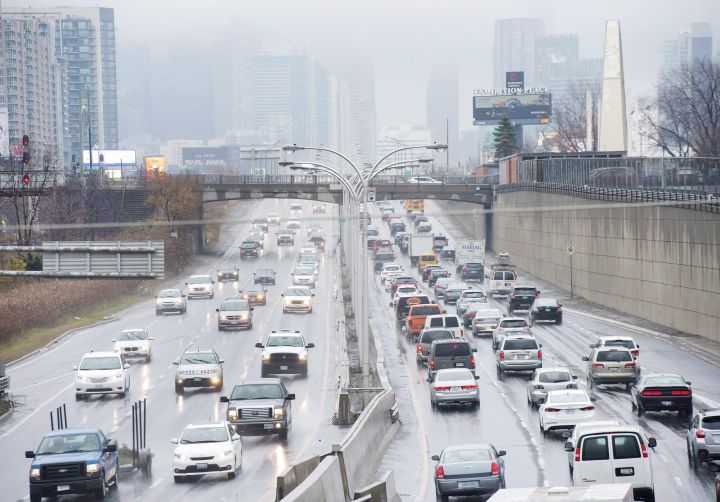The federal government has proposed rules for its Clean Fuel Standard that producers and distributors would have to follow under its climate plan.

“As the world moves to a cleaner economy, countries and businesses around the world are making a major shift to cleaner and non-emitting fuels,” said Environment Canada spokeswoman Moira Kelly in an email.
“Canada can — and should — make these fuels right here at home.”
READ MORE: Atlantic provinces ask federal government to delay implementation of clean fuel standard
The Clean Fuel Standard’s aim is to reduce greenhouse gas emissions by reducing the carbon in fuels people burn to run their cars or heat their homes. It is part of an overall federal strategy that the Liberal government says will allow Canada to meet or exceed its Paris climate agreement commitments.
It’s expected it would increase the cost of a litre of gasoline by up to 11 cents over the next decade. Officials say the standard would reduce emissions by nearly 21 megatonnes by 2030.
An analyst at the Pembina Institute, a clean-energy think tank, said the proposed rules would encourage cleaner vehicles. Transportation is one of Canada’s largest sources of greenhouse gas.
“Clean fuels such as sustainable biofuels, low-carbon hydrogen, and electricity from renewables are at the core of all countries’ net-zero ambitions,” said Bora Plumptre. “We applaud the federal government for taking this long-heralded next step to build Canada’s competitive advantage in these key sectors.”

Get daily National news
READ MORE: Ottawa’s long-term plan to increase hydrogen use focuses on regional hubs
Watch below: (From Aug. 29, 2018) When asked if she would consider delaying the release of the clean fuel standard because of concerns raised by the Alberta government, Catherine McKenna did not provide a concrete answer.

The Canadian Association of Petroleum Producers, saying it would take more time to review the lengthy document, was more cautious.
“(The association) supports measures that incentivize innovation and deliver emissions reductions while avoiding increased costs,” it said in a release.
The regulations would require producers and distributors of fossil fuels to reduce their carbon content by 2.6 per cent by 2022 and by 13 per cent by 2030. Companies could achieve that by reducing carbon emitted during production and use of those fuels or by earning credits to apply against emissions.
Federal officials say the proposed regulations would make it easier for industry to meet the standard.
READ MORE: Ottawa relaxes clean fuel targets in short term due to coronavirus
- Donald Trump claims B.C.’s ‘very large faucet’ could help California’s water woes
- U.S. TikTok ban case pits free speech vs. national security. Which will win?
- Meta bans RT, other Russian state media outlets over ‘foreign interference’
- A final, tragic text from doomed Titan sub revealed at Coast Guard hearing
Producers would have more flexibility in how to reduce emissions. Energy efficiency, cogeneration, electrification and methane reduction could all qualify for credits.
Import rules would be tightened to ensure biofuels brought into Canada were actually reducing carbon emissions in their country of origin.
The rules would also enable fuel distributors to earn credits by helping drivers switch to electric vehicles by, for example, building charging stations.
Failing to meet the standard’s targets could result in fines under the Canadian Environmental Protection Act.
Current requirements to add biofuels into diesel and gasoline would remain and become part of the new regulations.
Renewable Industries Canada represents companies that produce renewable fuels, products, and technology. It called the proposals “an important step forward in Canadian policy towards recognizing the full value of clean fuels… in the fight against climate change.”
The Canadian Chamber of Commerce said in a tweet that it was encouraged that the federal government is listening to its concerns.
The regulations now enter a 75-day comment period. If adopted, they would come into force in 2022.







Comments